As per many nation Bangali or Bangladeshi people celebrate there new year that called Pohela Boishak. The celebration of Bengali New Year is also known as ” Nababarsha” (“Naba” means “New” & “Barsha” means “Year”) “Poila Baisakh” or “Pohela Baisakh”. “Nababarsha” means “New Year” in Bengali language. 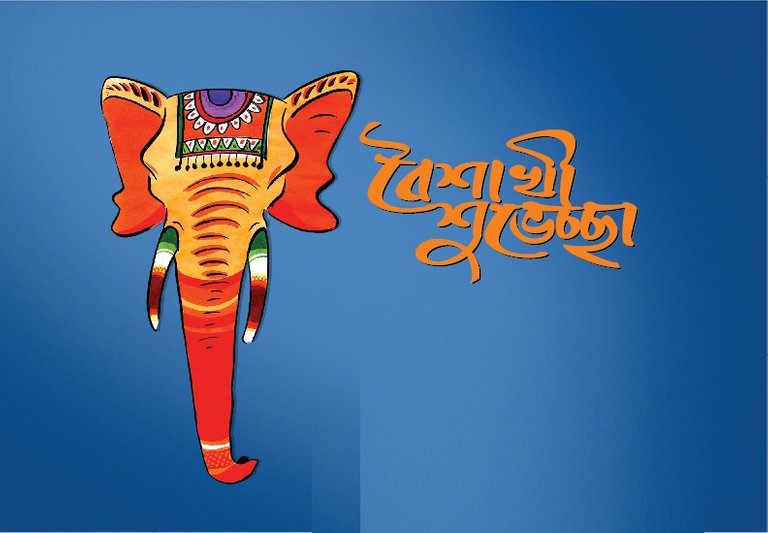
Photo(https://sdasia.co/2015/04/15/top-3-pohela-boishakh-news-stories/)
The word “Poila” or “Pohela” means “First” in Bengali and “Baisakh” is the 1st month as per the Bengali calendar. As per the Bengali calendar, Bengali New Year is celebrated on the 1st day of the 1st Bengali month. Hence, the Bengali New Year is also known as “Poila Baisakh”. Mainly every year Bengali New Year celebrate in 14 April.
History of Bengali New Year
Pohela Boishakh celebration dates back to Mughal Emperor Jalaluddin Muhammad Akbar’s reign. Akbar the Great, the renowned grandson of Zahiruddin Muhammad Babar was the 3rd Mughal Emperor. In order to ease tax collection, Akbar-e-Azam changed the tradition of agricultural tax collection according to Hijri calendar and ordered a reform of the
bangla calendar because the Hijri calendar, being a lunar calendar- did not coincide with the harvest sessions and thus the farmers faced severe difficulties in paying taxes out of season.
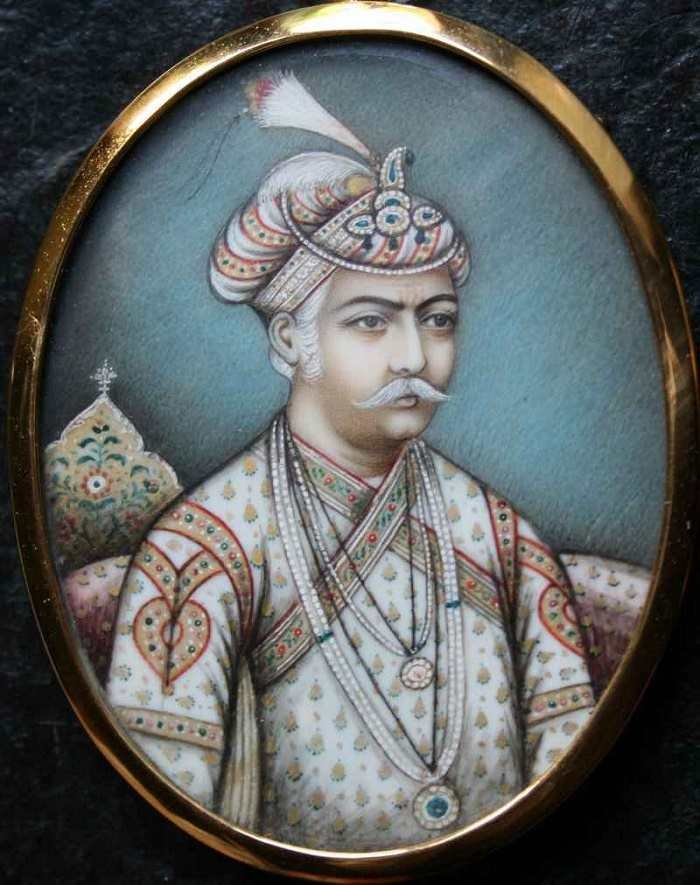
photo(https://www.culturalindia.net/indian-history/akbar.html)
The Royal Astrologer of Emperor Akbar’s court, Aamir Fatehullah Siraji, was the one who actually devised this calendar, after performing a research on the lunar Hijri and Solar calendar. Bangla Year was introduced on 10/11 March 1584, but was dated from 5th November 1556 or 963 Hijri. This was the day that Akbar defeated Himu in the second Battle of Panipat to ascend the throne. This not only glorified his victory but also streamlined revenue collection into an orderly process.
It was Akbar-e-Azam’s directive to settle all dues on the last day of Choitro. The next day was the first day of the New Year (Poyela Boishakh), the day for a new beginning; landlords would distribute sweets among their tenants, and Businessmen would open a “HalKhata” 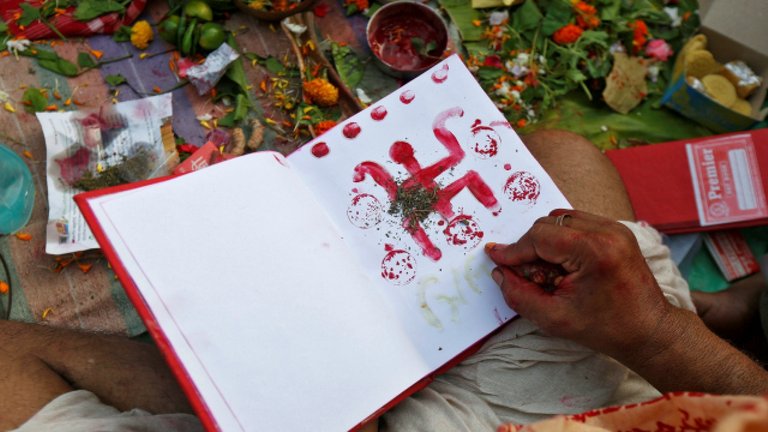
(new accounts book) and close their old ones. Businessmen used to invite their customers to share sweets and renew their business relationship with them. There were fairs and festivities allover and gradually Poyela Boishakh became a day of celebration.
Photo (http://www.dnaindia.com/india/report-poila-baisakh-becomes-major-culinary-event-for-kolkata-foodies-2201940)
Celebration of Pohela Boishakh
Pohela Boishakh is a Public festival of the Bengalis; it is celebrated among all Bengalis- irrespective of religious and regional differences. As discussed earlier; the celebrations started from Akbar’s reign. But the Public celebration of Poyela Boishakh and the large-scale organizations of cultural events have started more recently.
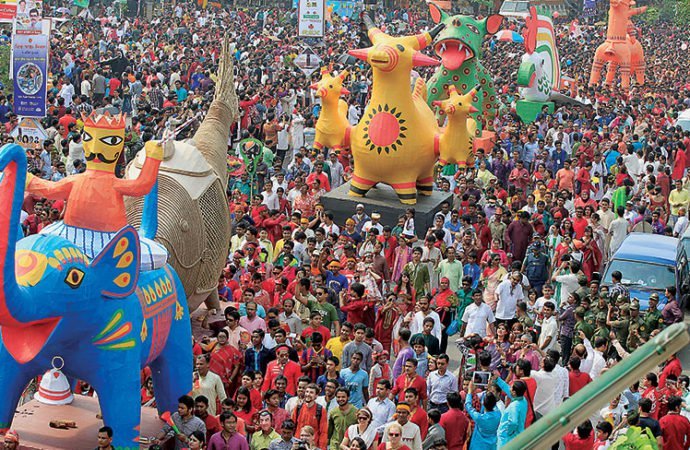
photo(https://www.dhakatribune.com/bangladesh/dhaka/2018/04/12/tight-security-planned-pohela-boishakh-celebrations/)
People from all walks of life dress-up in traditional Bengali attire: Men wear dhuti / payejama / lungi and kurta /Panjabi. Young women wear white saris with red borders, and adorn themselves with tip (bindis), churi (bangles) and fūl (flowers). Its like a custom to start the day with the traditional breakfast of Pantā-Bhāt (leftover rice soaked in water), onion, Shōbuj Lōnkā (green chillies), Āchār (pickles), dāl (lentils) & Bhāja Elish Māch (fried Hilsa fish).
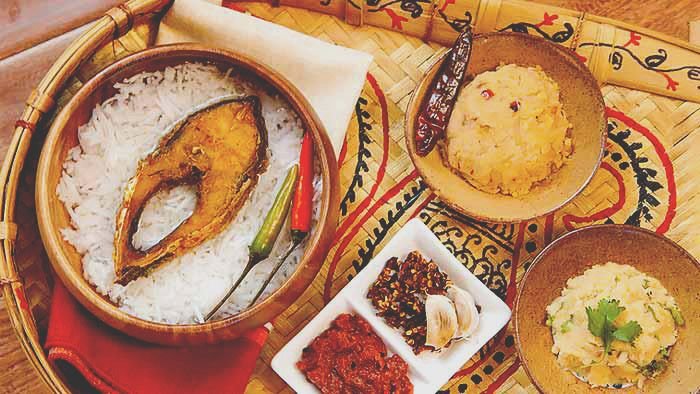
Photo(http://www.intellect.com.bd/details/298/food-for-thought~-pohela-boishakh)
The Poyela Boishakh celebrations and festivities reflect the life in rural Bengal. Usually on this day everything is washed and cleaned; people bathe early in the morning and dress in fine clothes and then go to visit relatives and friends. Special food items are prepared for the guests. Starting as a rural festival, Poyela Boishakh has now become an integral part of Bengali culture.
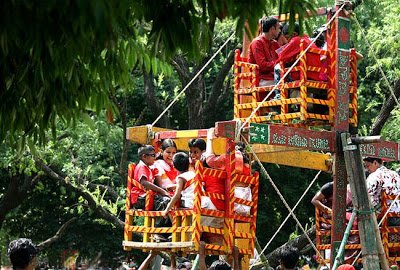
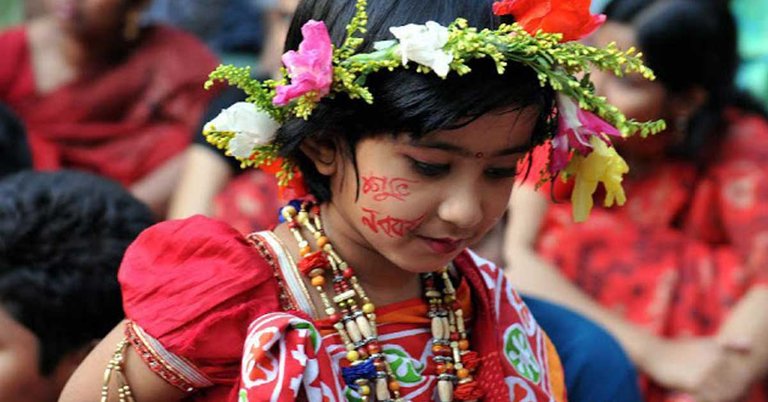
Photo(http://twostepsfromhome.blogspot.com/2013/04/)
Photo(https://examresultbd.com/pohela-boishakh-sms/)
Photo(https://www.ucanews.com/news/bengali-new-year-tradition-harmony-and-tolerance/75755)
In Dhaka, large numbers of people pour out of their houses and gather early in the morning under the banyan tree at Ramna Park. Along with the rising sun, the Chhayanat artists sing the famous song of Tagore in chorus, ” Esho, he Boishakh, Esho Esho (Come, O Boishakh, Come, Come), welcoming Boishakh.
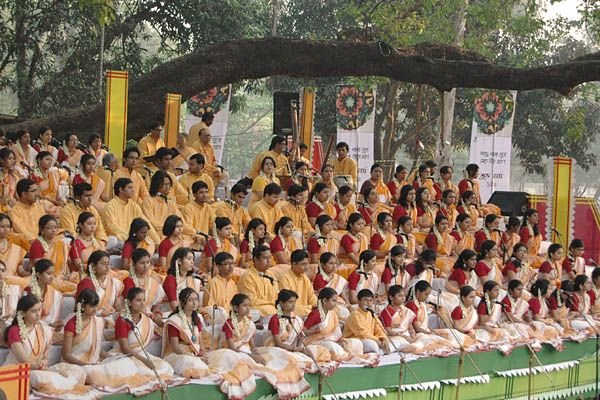
Photo(https://banglaphoto.wordpress.com/2009/04/20/pohela-boishakh-bangla-new-year/)
Bangali new year or "Pohela Boishak" are celebrate all over Bangladesh. "Grameen mela" "Nouka baiyce" and many other traditional program held many place allover the country.
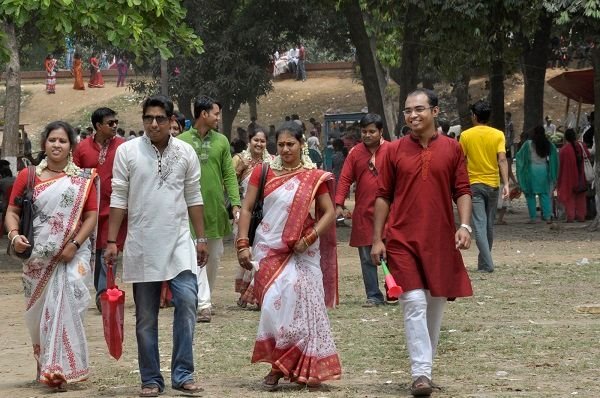
Hi! I am a robot. I just upvoted you! I found similar content that readers might be interested in:
https://amarkhatun.wordpress.com/2013/04/14/pohela-boishakh-bengali-new-year/